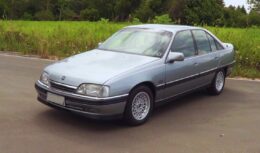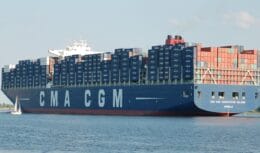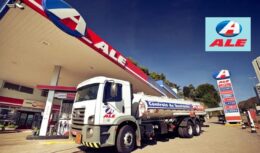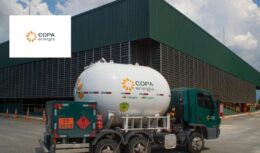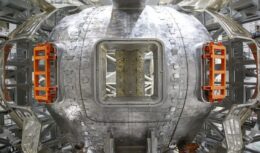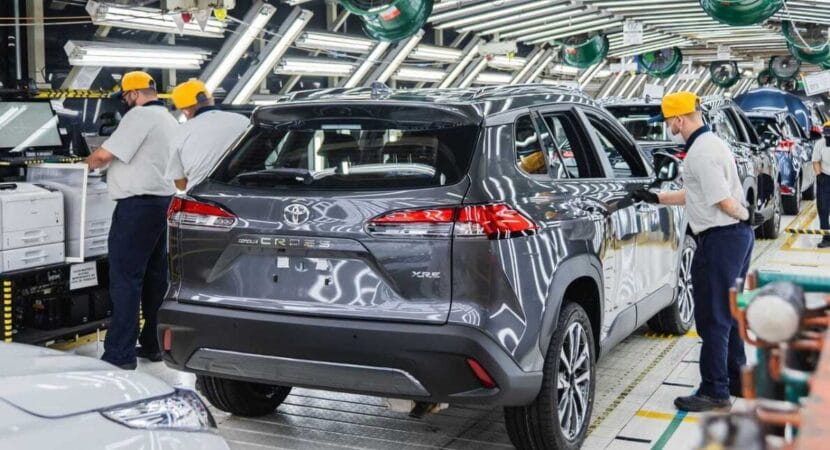
Federal Government program promises to increase car production in Brazil by 20%, reaching more than 2,7 million units by next year. Toyota, Renault, Volkswagen, GM, Ford, Fiat, Honda, Nissan and more automotive giants have already been approved!
Revolution in Brazil's automotive industry: The Federal Government presented on Wednesday (26) the regulation that allows automakers to qualify to receive R$19,3 billion in tax incentives through the National Green Mobility and Innovation Program, known as Mover, after an extensive discussion on the program's points until 2028.
The objective is to stimulate the automotive industry with the production of new technologies and expand the decarbonization of the fleet, covering passenger cars, buses and trucks. Automakers installed in the country, through this program, commit to carrying out an investment cycle of R$117 billion, valid for the period between 2021 and 2030.
Geraldo Alckmin, vice-president and minister of Development, Industry, Commerce and Services, signed the ordinance that establishes the requirements for qualification and granting of credits. The text of the ordinance regulates several aspects, including minimum investments in research and development, monitoring systems and penalties for non-compliance with obligations.
Mover Program promises to increase car production in Brazil by 20%, reaching more than 2,7 million units by next year.
Companies interested in accessing credits must invest at least between 0,3% and 0,6% of their Gross Operating Revenue. For each real invested, a credit between R$0,50 and R$3,20 will be granted, which can be used to reduce any taxes administered by the Federal Revenue.
The Minister of Finance, Fernando Haddad, predicts with the Move Program a 20% increase in automobile production in the country, reaching more than 2,7 million units by next year.
According to the government, all companies, whether or not eligible for program credits, must meet mandatory requirements, including new requirements and metrics such as recyclability and the measurement of carbon emissions throughout the entire life cycle of the propellant source and in the stages production and disposal of the vehicle.
The government promulgated the provisional measure (MP) who established Mover in December last year, putting the regulations into force. Recently, a bill (PL) was presented to Congress that formalizes the program, operating in conjunction with the MP. The texts are identical and it is up to Congress to decide the best way to proceed with the legislative proposal.
The Mover Program establishes minimum recycling limits in the vehicle manufacturing process and introduces lower taxation for less polluting vehicles through the Green Industrialized Products Tax (IPI). Geraldo Alckmin mentioned that the IPI Verde regulations are still in the process of being defined and will be detailed later.
The expectation is that the new regulation will change the tax calculation structure, replacing the current system, which is based on the cubic capacity of engines, with a new criterion focused on emissions rates and thermal efficiency. This will mean evaluating how much an engine pollutes and its ability to maximize the use of energy without wasting it.
Understand the Mover Program, which represents an evolution in incentive policies for the automotive industry in Brazil
The Mover Program, an initiative that succeeds Rota 2030 launched in 2018 and which in turn replaced Inovar Auto in 2012, represents an evolution in incentive policies for the automotive industry in Brazil. During the validity of Rota 2030, the average annual tax incentive was approximately R$1,7 billion until 2022.
According to the government, the objective for all car manufacturers in the country is ambitious: to reduce carbon emissions by 50% by the year 2030. Furthermore, it is established that the vehicles produced must meet minimum requirements, making them more economical, safe and environmentally sustainable.
Companies qualified for the program are required to submit, annually by July 31st of the subsequent calendar year, a monitoring report. The validity of the license extends until January 31, 2029. If there is non-compliance with the established requirements, commitments, conditions or additional obligations, this may result in the retroactive cancellation of the license or its suspension.
Furthermore, investment projects presented by companies must detail the products, systems or strategic solutions focused on mobility and logistics that will be developed, including descriptions and technical specifications. It is also expected that there will be new investments in fixed assets and in research and development, reinforcing the commitment to innovation and sustainability in the sector.
Qualification criteria: projects must generate employment and qualify labor, promoting professional and technical advancement in Brazilian industry
The criteria for qualifying projects under the Mover Program include the generation of increasing levels of productivity and competitiveness. This must be achieved through the incorporation of advanced technologies in both products and production processes, aligned with the most current state of art and technique. Furthermore, projects must focus on training and training human resources, essential for scientific and technological development.
Another important criterion is the effective contribution of the projects to complying with the guidelines established by the Mover Program, ensuring that each initiative is aligned with the program's general objectives. Additionally, projects must promote the hiring and development of qualified labor, reinforcing the program's commitment to professional and technical advancement in the industry.
Toyota, Renault, Volkswagen, GM, Ford, Fiat, Honda, Nissan and more automotive giants have already been approved by the Government
The Ministry of Development, Industry, Commerce and Services (MDIC) announced this Tuesday (9/4) that 23 companies were approved to participate in the Mover Program. The list, published in the Diário da União, includes big names in the automotive sector, such as Toyota, Renault, Volkswagen, Peugeot-Citroën, General Motors, Mercedes-Benz, and Nissan. In addition to these, Honda, Ford (research center), FCA Fiat Chrysler, and other companies such as Sodecia, Marcopolo, and Weg electrical equipment were also approved.
Additionally, the MDIC reported that another 18 requests to join the program are still in the analysis phase. The approved companies cover a diverse range of the sector, including manufacturers of passenger vehicles, trucks and buses, such as Volkswagen Caminhões e Ônibus and On-Highway, as well as companies specializing in components and equipment, such as Weg Drive & Controls, FTP, Eaton, Faurecia, FMM, Horse and Schulz.
Nova Indústria Brasil: new government project offers special credits through BNDES and tax incentives for machinery renewal
The Brazilian government is expanding its efforts to combat deindustrialization with the introduction of the Nova Indústria Brasil program, complementary to the Mover Program. Nova Indústria Brasil focuses on strengthening the industrial sector through the granting of special lines of credit made available by the National Bank for Economic and Social Development (BNDES), in addition to offering tax incentives for the renewal of machinery. These measures aim to revitalize industrial production, improve efficiency and boost the modernization of production facilities in the country.



